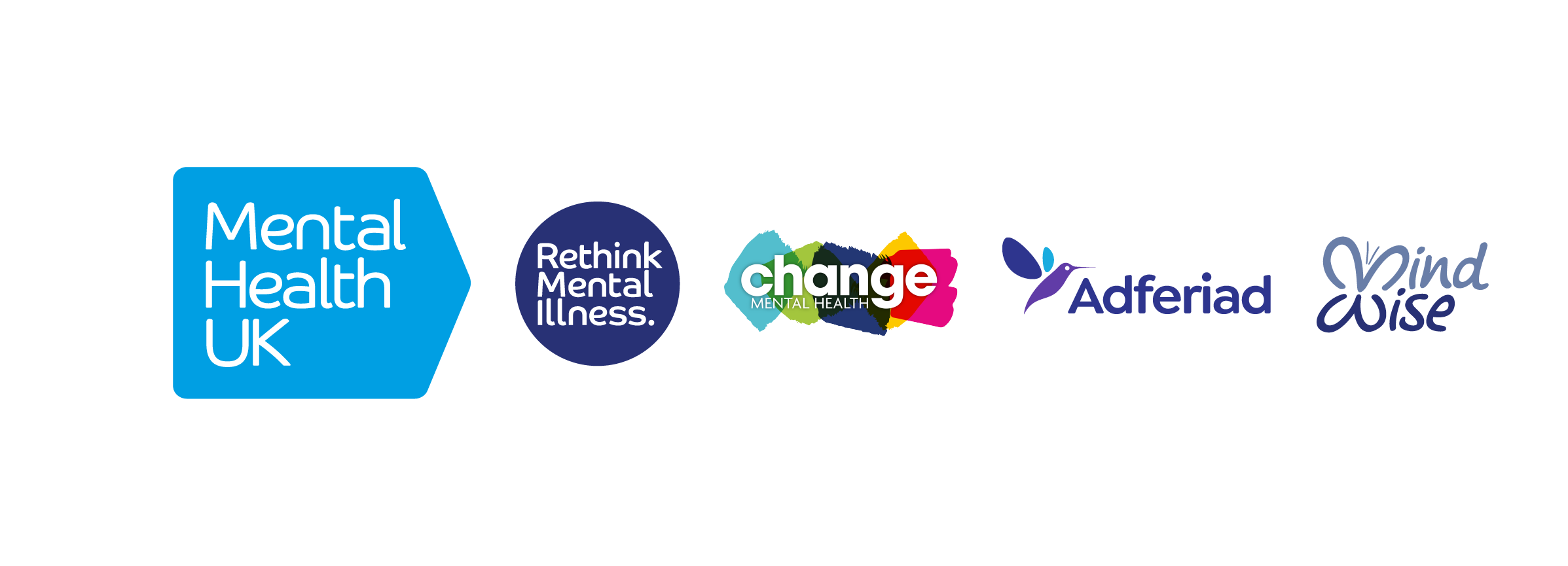- Home
- Info & Support
- Treatment & Support
- Current: Recovery
- Who We Are
-
What We Do
- What We Do
- MindWise Services
- News, Events & Blogs
- Compliments & Complaints
- Campaigning & Lobbying
- Mental health training & coaching
- WiseMoves film series
-
Support Us
- Support Us
- Donate now
-
Volunteer
- Volunteer
- Activities Volunteers - Magherafelt
- Event and Fundraising Volunteers - Northern Ireland
- Volunteer Moderator for Client Facebook Group
- Activities Volunteers - Lurgan, Newry, Banbridge, Kilkeel
- Volunteer Walk Leader - Newry
- Volunteer Walk Leader - Banbridge, Lurgan
- Guitar Group Leader - Ballyclare
- Volunteer Facilitators - Beyond Bricks, Lego Play - Toomebridge, Portadown, Lurgan, Banbridge, Newry, Fermanagh, Castlewellan
- Gardening Volunteers - Kilkeel
- Befriending Volunteer- Kilkeel
- Guitar Group Leader Belfast
- Befriending Volunteer - Antrim
- Arts and Crafts Volunteers - Banbridge
- Befriending Volunteers and Volunteer Drivers - Areas include Killyleagh, Newcastle, Ballynahinch, Rostrevor, Warrenpoint, Newry and Kilkeel
- Creative Writing Facilitator Volunteer - Kilkeel
- Fundraise
- Corporate Partners
- Become a Member
- Virtual Fundraising Hub
- Info & Support
- Mental Health Conditions
- Mental Health Training
-
News & Blogs
- News & Blogs
- Categories
- 2019
-
2020
- 2020
- January
- February
- March
-
April
- April
- 5 tips for coping with coronavirus when you've got a mental health issue
- Coronavirus: money, benefits & debt
- MindWise support during social distancing
- "Down at MindWise" by the Ballyclare Music Group
- How Coronavirus Has Changed my Role as a Community Mental Health Worker
- MindWise welcome the appointment of a Mental Health Champion for Northern Ireland
- Being in lockdown when you live in supported housing
- May
-
June
- June
- Why Volunteering is Good for Your Mental Health
- Staying informed while protecting your wellbeing during Covid-19
- MindWise joins forces with government and charities to support mental wellbeing
- What it's like caring for someone with a mental illness in lockdown
- How our tenants are keeping busy during lockdown
- July
- August
- September
- October
- November
- December
-
2021
- 2021
- January
- February
-
March
- March
- How effective has the Health and Social Care response to COVID-19 been?
- MindWise partnering with Queen's University on new mental health study
- MindWise launches new service to support 11–13 year-olds and their parents
- Maternal mental health during the pandemic: a report
- MindWise response to strategy on supporting women in the justice system
- How to deal with debt collectors in Northern Ireland
- MindWise's response to the consultation for the Programme for Government
- Marking World Bipolar Day on March 30th
- April
- May
- June
- July
- November
- 2022
- 2023
-
2024
- 2024
-
January
- January
- New Year, Same Me: Practical Resolutions and Self-Care in 2024
- The Heart Behind the Lens: Margaret Cooke's MindWise Journey
- Children’s Mental Health Week 2024: Co-Production - My Voice Matters!
- Debunking Blue Monday: Navigating Mental Well-being Year-Round
- Understanding Mental Health in Families
- The Chilling Reality: Cold Homes and Mental Health
- A User-Friendly Guide to Understanding ADHD
- Petition - Wise Up! Fund Children and Young People's Mental Health Services
- February
-
March
- March
- International Women's Day 'Investing In Women: Accelerating Progress'
- Statement From Dr Gareth Mulvenna on Northern Ireland Audit Office Child Poverty Report
- International Day for Elimination of Racial Discrimination
- The Mental Health Foundation and the Maternal Mental Health Alliance launch Amplifying Maternal Voices Toolkit
- Are Panic Attacks Dangerous
- Understanding Bipolar Disorder
- April
- I need urgent help
- Donate
Do you need urgent help?
If you need to speak to someone right now, here are some confidential options which provide 24/7 support. If you're worried you might hurt yourself or someone else, please call 999, or go to your nearest A and E.
Childline
Helps anyone under 19 in the UK with any issue they’re going through. Childline is free, confidential and available any time, day or night.
0800 1111Samaritans
24 hours a day, 365 days a year. You don't have to be suicidal to call us
Recovery
Recovery means more than just treating our symptoms. It can mean looking at what we could do to improve our lives as a whole and finding what works for us as an individual.
We can all take steps towards recovery.
Recovery is a very personal thing and will be different for everyone. It’s often helpful to think about it like a journey. There might be difficulties and times when we feel we’re going backwards – but if we look at our lives overall, things feel better than they were before.
What might be part of my recovery?
There are lots of different things that might be part of our recovery.
- Medication and / or therapy that helps us to manage our symptoms.
- Finding somewhere to live that we feel safe and supported in.
- Getting a job that we like.
- Building a good relationship with our family.
- Meeting new friends or reconnecting with old ones.
- Looking after our physical health.
- Working with someone who can help us recover. This might be a doctor or therapist or it could be a carer, social worker, key worker, teacher or friend.
- Learning how to look after ourselves and take control of our recovery.
- Accepting that there are some things we can’t change.
- Feeling hopeful and living a good life alongside our mental health issues.
For some of us these things will start to happen naturally. But it might be helpful to think about recovery in a structured, step-by-step way.
MindWise - Supporting and empowering people affected by mental health issues to live their best lives
Get In Touch
- Contact Us
Work With Us
- Current vacancies
How We Protect Your Data
- Privacy Policy
How We Spend Our Money
- Finances & Accounts
Become A Member
- Sign Up - It's Free
Staff login
- Staff website
Registered in Northern Ireland Number NI071976. Registered Office Pinewood House, 46 Newforge Lane, Belfast BT9 5NW. MindWise is the operating name of Mind Wise New Vision a company limited by guarantee and recognised by HM Revenue and Customs as a charity for tax purposes.
- Cookie Policy
- Privacy Policy
- Copyright 2024
- Website by the Web Bureau



